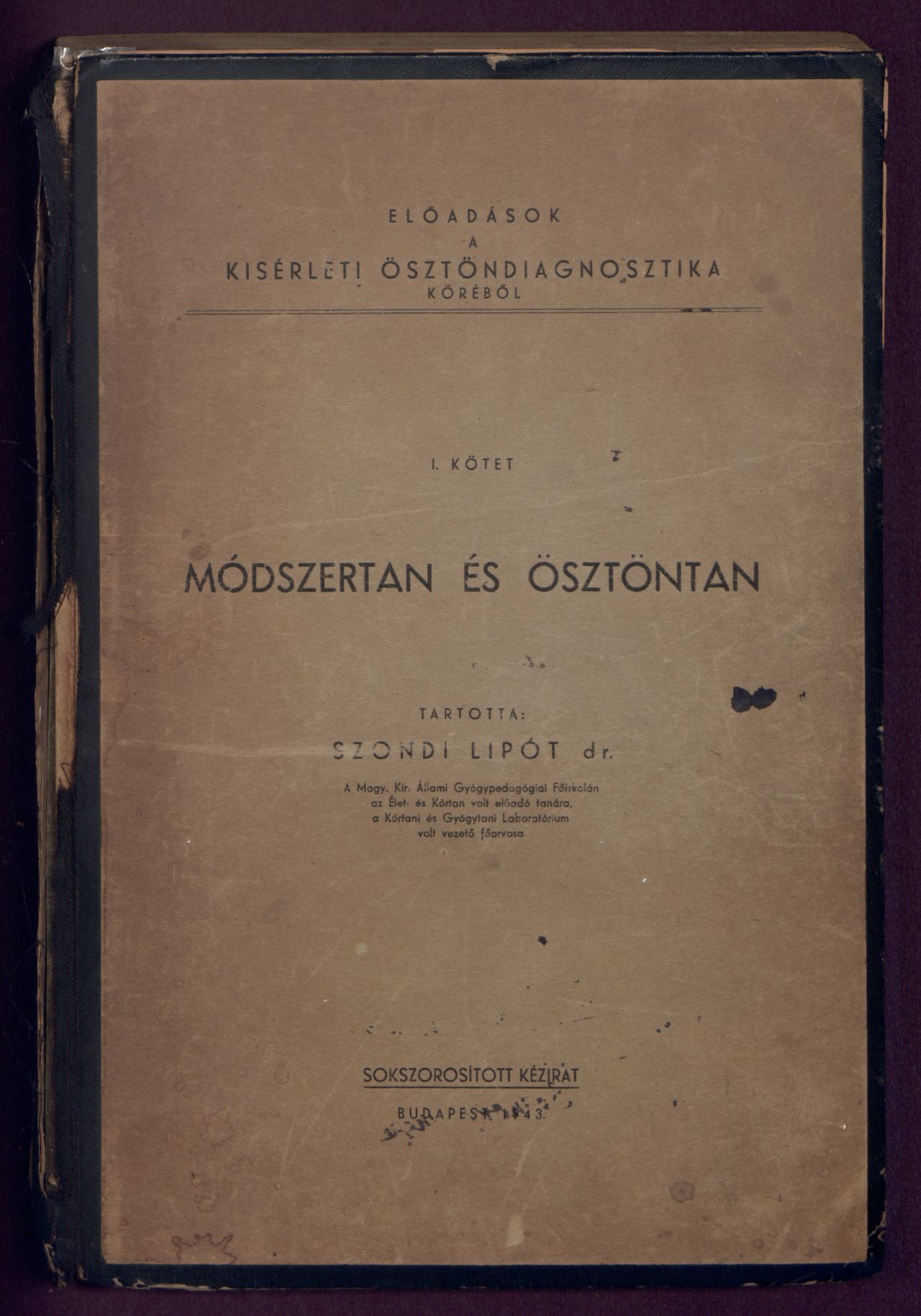Object of the month – Szondi test
Lipót Szondi (Nyitra, March 11, 1893 – Küsnacht, Switzerland, January 27, 1986) was an internationally famous neurologist, psychiatrist, creator of fate analysis and the Szondi instinct diagnostic test. He spent his early years with Pál Ranschburg in the psychological laboratory of the Appony Polyclinic, and from 1927 in the Medical Pedagogy, Clinical and Medical Laboratory of the Special Education Training College. In 1941, he lost his job as a result of the Jewish Law. In December 1944, he and his family received asylum in Switzerland. He settled permanently in Zurich, where he formed the Szondi circle. He practiced psychiatry and psychology and further developed the scientific theoretical and practical research that he had begun in Hungary.
He created his test during his work in Hungary. Alongside Ranschburg, he participated in endocrinological, morphological and genetic research. Afterwards, he was given an independent research position at the Special Education, Pathology and Medicine Laboratory, which operated within the legal predecessor institution of ELTE Bárczi Gusztáv Faculty of Special Needs Education, and his research there led to the creation of the test.
The Szondi test is also known by several other names: Szondi gene test, Szondi instinct diagnostic test. It is one of the most well-known projective tests (to examine the dynamics of the whole personality) worldwide.
Szondi traces back almost all normal and pathological phenomena of human life to instincts. In his research, the data of 1,000 families and 15,000 family members (detailed medical, biological, psychological examinations and characteristics of the family's social and mental environment) were recorded. In order to reveal the hereditary background, a family tree was created for each case to map the characteristics and frequency of the diseases. Szondi came to the conclusion that our fateful choices are only seemingly conscious, the actual background of our choices is provided by the family unconscious. Szondi was looking for a method to examine what appears at the level of the individual from the "inheritance" provided by the family background. The test was created to examine this.
An early copy of the test, and a manuscript entitled Methodology and Instinct, presenting its administration manual and theoretical foundations can be found in the ELTE Bárczi Gusztáv Faculty of Special Needs Education Library and Historical Collection of Special Needs Education.
Sources:
- Gordosné Szabó Anna: Szondi Lipót. In: Báthory Zoltán, Falus Iván (főszerk.): Pedagógiai Lexikon, III. kötet, Budapest, Keraban Kiadó, 1997.
- Gordosné Szabó Anna: Szondi-teszt. In: Báthory Zoltán, Falus Iván (főszerk.): Pedagógiai Lexikon, III. kötet, Budapest, Keraban Kiadó, 1997.
- Szondi Lipót. In: Magyar Életrajzi Lexikon https://www.arcanum.com/en/online-kiadvanyok/Lexikonok-magyar-eletrajzi-lexikon-7428D/sz-77C95/szondi-lipot-7806C/ (Downloaded: 2023. 03. 06.)
- Kiss Enikő Csilla: A kísérleti ösztöndiagnosztikai teszt, a Szondi-teszt. In: Császár-Nagy Noémi, Demetrovics Zsolt, Vargha András (szerk.): A klinikai pszichológia horizontja. Tisztelgő kötet Bagdy Emőke 70. születésnapjára. Budapest, L’Harmattan Kiadó, 2012, 248–261.
Written by Bergmann Krisztina

